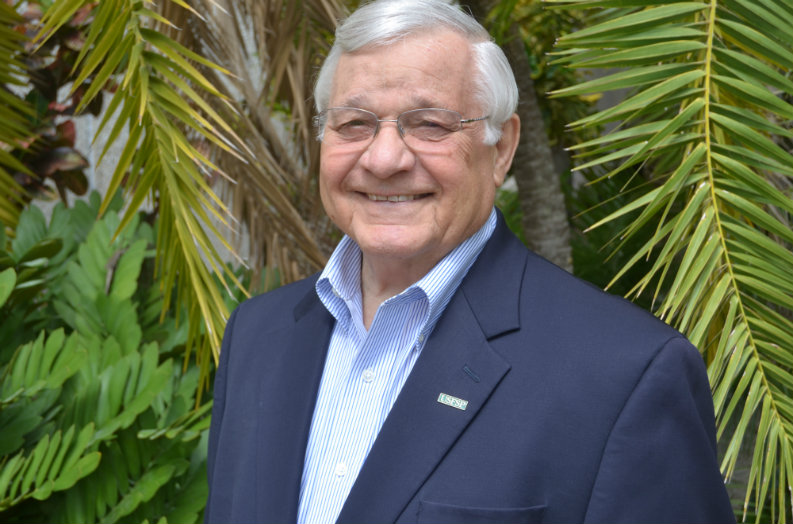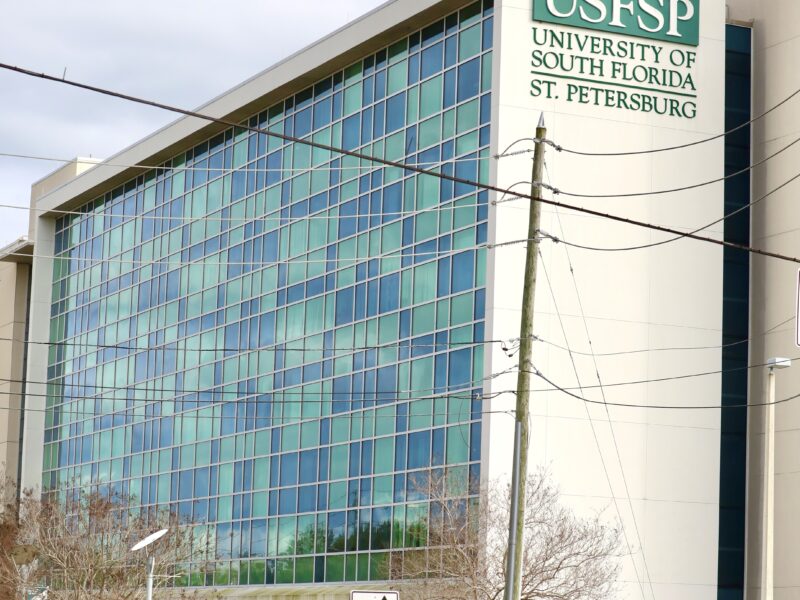Students who earn degrees in education at USF St. Petersburg don’t have to worry much about finding a teaching job after graduation.
But teaching these days is no school picnic.
That’s the assessment of Bill Heller, who as dean of the College of Education and a former state legislator has an insider’s perspective on the intersection of education and politics.
“If you want employment, you can have it in education,” said Heller, who predicted that most of the college’s 300 undergrads will land jobs. “But it’s a tough world in education right now.”
Virtually every lawmaker had “one bad teacher” growing up, Heller said, so many legislators believe they know what’s best in setting standards for curriculum, students and teachers.
As a result, teachers have lost professional development opportunities and job protection, he said. They are increasingly judged by their students’ standardized test scores, and the state’s “best and brightest” teacher scholarships are based in part on how teachers performed on their SAT or ACT tests.
“I’m not a fan of the best and brightest” program, said Heller, who said education “has become a political football.”
Heller, 80, traces his passion for education to his own upbringing in a series of rural, one-room schools in Illinois. Teachers “always made special efforts with my brother and me,” who were raised by their father – a poor farmer with a sixth-grade education – and grandparents, he said.
“Teaching is a part of me.”
He married his wife, Jeanne, in 1954. Her sister is deaf, he said, and that helped prompt his career-long interest in special education.
After a hitch as a paratrooper with the Army’s 82nd Airborne Division, Heller earned a bachelor’s in elementary and special education at Southern Illinois University, a master’s in guidance and counseling from Northern Illinois and a doctorate in special education from Northern Colorado University.
In the years that followed, his career included stints as a special education teacher, an administrator in the U.S. Department of Education, superintendent of a psychiatric hospital and professor and administrator at Indiana State University, the University of Alabama and the University of North Carolina at Charlotte.
Heller served as dean of education for UNC Charlotte from 1979 to 1992, the year he became dean and executive officer of the St. Petersburg campus of USF.
Back then, the campus had 3,200 students – all juniors, seniors and graduate students –and 350 faculty members and staff, with an annual budget of $30 million.
Over the next decade, Heller said, he pushed to make the growing campus a four-year institution with residence halls and its own accreditation.
“Who wouldn’t want to have four-year college program on a beautiful site like this?” he said.
In 2002, he abruptly resigned his post at the request of USF President Judy Genshaft – a move that rankled many people on campus and in the community – and returned to teaching.
Heller said he and Genshaft disagreed on the goals and direction for the campus, and since he “served at the mercy, the pleasure,” of the president, he stepped down as requested.
“She had a responsibility” as president, he said, and he respected that. He said Genshaft has been a good president and he counts her as a friend.
He also noted that his goals for the campus – including separate accreditation in 2006 – have been realized.
“Sometimes the messenger loses his arm,” he said.
At the encouragement of a former USF president, Betty Castor, Heller ran for a seat in the state House of Representatives in 2006. He served two, two-year terms as a Democrat before being swept out of office in 2010 at the height of the tea party movement, “when everybody was to the right of Attila the Hun.”
That same year Heller became director of the Bishop Center for Ethical Leadership and Civic Engagement on campus, and in 2012 he became dean of the College of Education.
Heller and his wife have three children, three grandchildren and three great-grandchildren.
Retirement is not in his immediate plans, Heller said.
“My wife doesn’t want me at home full time,” he quipped, and “I haven’t had a day yet that I didn’t want to come to work.”



